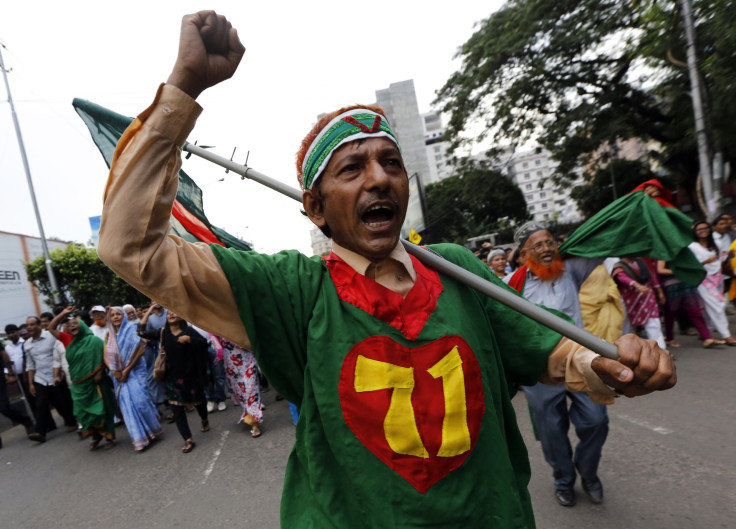Bangladesh Islamist Leader Mohammad Kamaruzzaman's Final Death Appeal Rejected By Highest Court

The highest court in Bangladesh on Monday upheld the death sentence handed down to Islamist leader Mohammad Kamaruzzaman over war crimes committed during the 1971 independence war. The rejection of the appeal by Chief Justice S.K. Sinha has cleared the last hurdle for the execution of the accused unless he is granted clemency by the country's president.
"He can now seek clemency from the president but it is up to him whether he wants to seek mercy or not," Shishir Monir, his lawyer, told Agence Fance-Presse (AFP), adding: "If he refuses, he could be hanged any moment."
A domestic war crimes court had sentenced Jamaat-e-Islami leader Kamaruzzaman to death in May 2013 after it found him guilty of war crimes including torture, abduction, murder and mass killing at a site that later came to be known as the “Village of Widows," AFP reported.
In November, an appeals court upheld the death sentence, paving the way for Kamaruzzaman to become the second Islamist to be hanged for war crimes in the country after Abdul Quader Molla who was executed in December 2013.
"We’re happy. He is a notorious war criminal. We made several attempts during the 1971 war to capture him. But finally he is caught by the court," Anwar Hossain, who fought in the independence war, told AFP, adding: "We hope he’ll be executed (in) the quickest time possible."
The decision by the highest court over Kamaruzzaman’s execution could worsen the political situation in the country, which has seen unrest after the courts charged Jamaat leaders for their role in the war and handed down death sentences in 2013, AFP reported. Opposition parties in the country claim that the war crime trials are politically motivated, while the rights groups say the trials have not been conducted according to international standards.
However, Sheikh Hasina’s government says that such decisions will help heal the wounds of the conflict, which killed about three million people, according to government estimates. The number is, however, estimated to be much lower than that, according to independent associates, AFP reported.
© Copyright IBTimes 2024. All rights reserved.












